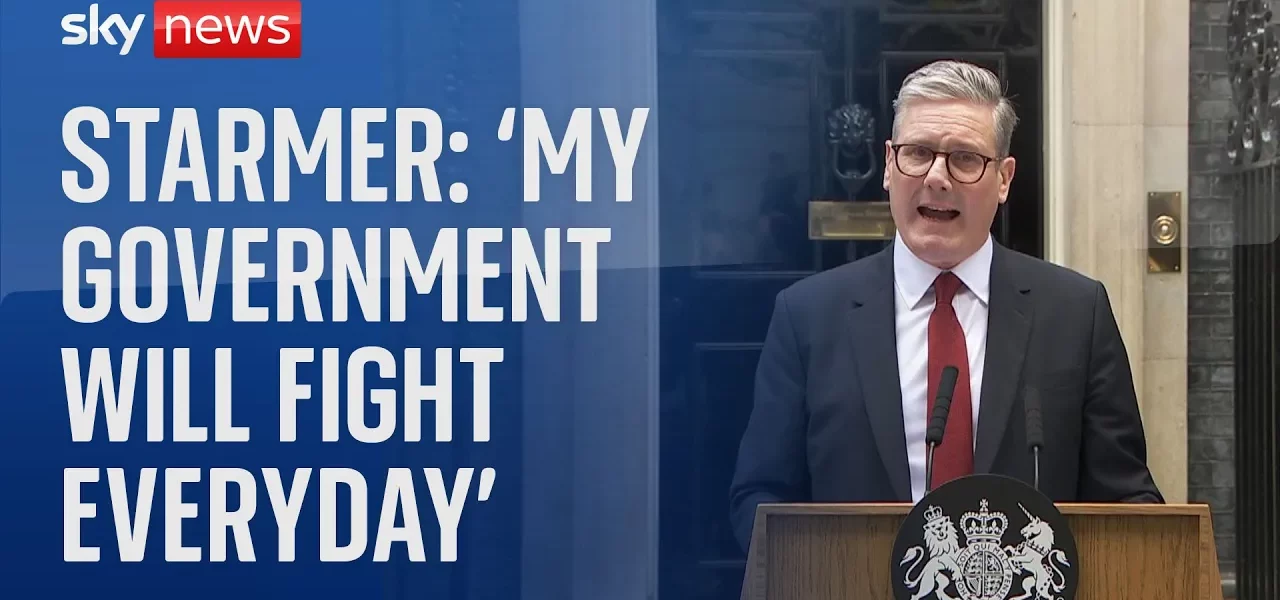Kier Starmer’s Historic Victory: A New Era for UK Politics

In a landmark moment for the Labour Party and British politics, Kier Starmer has emerged victorious as the Prime Minister, marking a significant shift in the political landscape. This article delves into the implications of his win, the response from the outgoing Prime Minister, and the challenges that lie ahead for the new government.
Introduction
Kier Starmer’s election as Prime Minister represents a pivotal moment in the history of the UK. After years of uncertainty and political upheaval, his victory not only reflects a decisive mandate from the electorate but also signals a yearning for change among the British public. This article explores the key aspects of his campaign, the reactions from various political figures, and what this means for the future of governance in the United Kingdom.
The Significance of Starmer’s Win
Starmer’s triumph is historic, as he becomes only the second Labour leader in half a century to secure a majority from the opposition. His journey from what he described as a “mountain to climb” to the top of British politics is a testament to his disciplined campaign strategy and the shifting priorities of the electorate.
Changing Political Dynamics
The political landscape in the UK has changed dramatically since the previous elections. Starmer’s victory is not just a win for the Labour Party but also an indication of the broader disillusionment with the existing political establishment. As he stated, “our country has voted decisively for change.”
The Challenge of Trust
One of the central themes of Starmer’s campaign was the restoration of trust in politics. He acknowledged the existing wounds created by previous governments and emphasized that healing these wounds would require action rather than mere words. This approach resonates with voters who are tired of political rhetoric lacking substance.
The Response from Rishi Sunak
In a heartfelt concession speech, Rishi Sunak expressed his gratitude for the opportunity to serve as Prime Minister while acknowledging the electorate’s desire for change. His departure from Downing Street marked the end of 14 years of Conservative rule, a significant period that shaped modern British politics.
Sunak’s Acknowledgment of Public Sentiment
Sunak’s acknowledgment of the public’s anger and disappointment reflects a deeper understanding of the electorate’s mood. He stated, “you have sent a clear signal that the government of the United Kingdom must change,” which underscores the shifting expectations of the British populace.
The Transition of Power
The transition from Sunak to Starmer was swift, with the former Prime Minister resigning and the new leader stepping into his role with a clear mandate. This seamless transition is crucial for maintaining stability during a period of significant change.
Implications of Starmer’s Leadership
With a historic majority, Starmer now has the opportunity to implement his vision for the UK. His government, marked by significant appointments of women in top positions, reflects a commitment to diversity and inclusivity in leadership.
Historical Firsts in Cabinet Appointments
- Angela Rayner as Deputy Prime Minister
- Yvette Cooper as Home Secretary
- Rachel Reeves as the first female Chancellor
These appointments signal a progressive approach to governance, potentially reshaping the narrative around women’s roles in politics.
A Unique Opportunity for Change
Starmer’s significant win places him in a unique position to become one of the most consequential Prime Ministers in recent history, alongside figures like Thatcher and Blair. However, this opportunity comes with immense responsibility as public trust remains fragile.
Conclusion: The Path Forward
Kier Starmer’s victory is not just a change in leadership; it is a call to action for a government that prioritizes service, respect, and unity. As he embarks on this journey, it is crucial for him to deliver on the promises made during his campaign. The electorate is watching closely, and the success of his administration will depend on its ability to foster trust and effect meaningful change.
As we look to the future, it is essential to remain engaged in the political process and hold our leaders accountable. For more insights on the implications of this election and its impact on British politics, explore our related articles on political reforms and governance.
“`




